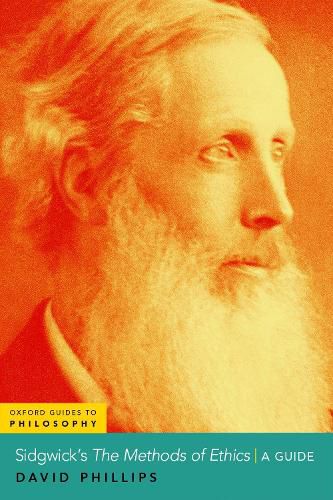Readings Newsletter
Become a Readings Member to make your shopping experience even easier.
Sign in or sign up for free!
You’re not far away from qualifying for FREE standard shipping within Australia
You’ve qualified for FREE standard shipping within Australia
The cart is loading…






Henry Sidgwick’s The Methods of Ethics has been a central part of the utilitarian canon since its publication in 1874. This book, part of the Oxford Guides to Philosophy series, is a concise companion to Sidgwick’s masterpiece, written primarily to aid advanced undergraduate students and interested general readers in navigating and interpreting the original text. Author David Phillips connects Sidgwick’s work to work in contemporary moral philosophy and in the history of moral philosophy, paying particular attention to his relationships with key predecessors, including Kant and Mill, and with Moore and Ross, his most influential successors in the British intuitionist tradition.
The book’s first eight chapters end with brief suggestions for further reading. At the end of the final three chapters there are more substantial overviews of the secondary literature on the aspects of Sidgwick’s work that have generated the most interest among his commentators: metaethics and moral epistemology; consequentialism versus deontology; and egoism and the dualism of practical reason. The result is an Oxford Guide that will be a helpful resource for both students and scholars.A
$9.00 standard shipping within Australia
FREE standard shipping within Australia for orders over $100.00
Express & International shipping calculated at checkout
Henry Sidgwick’s The Methods of Ethics has been a central part of the utilitarian canon since its publication in 1874. This book, part of the Oxford Guides to Philosophy series, is a concise companion to Sidgwick’s masterpiece, written primarily to aid advanced undergraduate students and interested general readers in navigating and interpreting the original text. Author David Phillips connects Sidgwick’s work to work in contemporary moral philosophy and in the history of moral philosophy, paying particular attention to his relationships with key predecessors, including Kant and Mill, and with Moore and Ross, his most influential successors in the British intuitionist tradition.
The book’s first eight chapters end with brief suggestions for further reading. At the end of the final three chapters there are more substantial overviews of the secondary literature on the aspects of Sidgwick’s work that have generated the most interest among his commentators: metaethics and moral epistemology; consequentialism versus deontology; and egoism and the dualism of practical reason. The result is an Oxford Guide that will be a helpful resource for both students and scholars.A